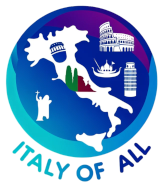The province of Rimini, located in the Emilia-Romagna region of northern Italy, is celebrated for its vibrant coastal culture, historic sites, and dynamic economy. Known primarily for its beaches and nightlife, Rimini is also a region with deep historical roots and a robust economic structure that balances tourism with agriculture and industry.
Geographically, Rimini is situated on the Adriatic Sea, featuring a long coastline renowned for its popular beaches and seaside resorts. The terrain extends inland to the rolling hills of the hinterlands, which are dotted with picturesque towns and fertile lands that support a variety of agricultural activities. This mix of coastal and rural environments offers a diverse range of activities and landscapes for residents and visitors.
Historically, Rimini has a rich history that dates back to Roman times. The city itself was founded in 268 BC and has many ancient Roman structures, including the Tiberius Bridge and the Arch of Augustus. During the Renaissance, Rimini became a significant cultural center under the rule of the Malatesta family, who commissioned numerous architectural and artistic works, including the Tempio Malatestiano, a masterpiece of Renaissance architecture designed by Leon Battista Alberti.
Culturally, Rimini is a bustling hub of Italian beach culture, renowned for its vibrant nightlife, entertainment, and festivals. The province hosts numerous events throughout the year, ranging from film festivals to culinary celebrations, attracting visitors from across Italy and Europe. Rimini is also significant in the film industry as the birthplace of the renowned filmmaker Federico Fellini, whose legacy is celebrated in various cultural institutions and events in the city.
Cuisine in Rimini reflects its coastal location, with a strong emphasis on seafood. Local dishes include “brodetto,” a traditional fish stew, and “piadina,” a type of flatbread that is a staple in the Romagna region. The hinterlands contribute with their agricultural products, including olive oil, wine, and fruits, which are essential ingredients in the local gastronomy.
Economically, Rimini’s economy is driven primarily by tourism, with its beaches, hotels, and entertainment facilities drawing millions of visitors each year. The province also benefits from a strong agricultural sector, particularly in wine and olive oil production, and has a growing industrial sector focused on small to medium-sized enterprises, including food processing, manufacturing, and high-tech industries.
Despite challenges related to seasonal tourism fluctuations and economic diversification, Rimini is actively developing strategies to enhance its cultural offerings and extend its appeal beyond the summer months. Initiatives to promote sustainable tourism, protect its historical sites, and support local agriculture are key components of the province’s development strategy.
Overall, the province of Rimini offers a dynamic mix of leisure, history, and economic vitality. Its ongoing efforts to preserve its rich cultural heritage while fostering sustainable growth ensure its continued attractiveness as a major tourist destination and an important economic player in Italy’s Emilia-Romagna region.
Comuni in Rimini Province:
